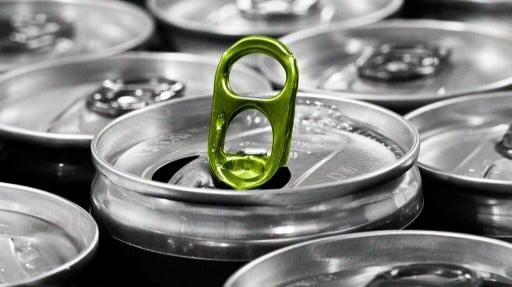 Share on PinterestSome energy drinks contain more caffeine than coffee. WendellandCarolyn/Getty Images
Share on PinterestSome energy drinks contain more caffeine than coffee. WendellandCarolyn/Getty Images- Researchers report that children who drink energy drinks might be at higher risk for ADHD, depression, poor sleep quality, and poor academic performance.
- They say that high levels of caffeine and sugar are the most likely reasons for this risk, although other stimulants could play a role.
- Experts say more regulation is needed to prevent young children from drinking energy drinks and that parents are key to helping their kids adopt better habits.
Energy drinks might seem like a harmless indulgence for youngsters, but new research published in the journal Public Health suggests they’re anything but — especially in large quantities.
After a systematic review of 57 previous studies covering 1.2 million children in 21 countries, researchers from Newcastle University in the United Kingdom reported that energy drink consumption among young people is linked to poor sleep quality and short sleep duration as well as lower academic performance compared to non-energy drinkers.
Energy drink consumption was also associated with increased risk of attention deficit hyperactivity disorder (ADHD) symptoms, psychological distress, depression, anxiety, insulin resistance, and dental issues.
Furthermore, this study, which was an update to a 2016 review, also affirmed the previous study’s findings of a strong positive correlation between drinking energy drinks and smoking, alcohol use, binge drinking, and other substance use.
Cesar Sauza, a registered dietitian nutritionist at ehproject.org who was not involved in the research, praised the study’s design and said the findings echo what he’s seen in his own practice.
“The results are not surprising,” Sauza told Medical News Today. “In clinical practice I have seen energy drinks affect children negatively with their academic performance, likely due to altered sleep. Another reason the findings are not surprising is that most energy drinks are high in sugar and caffeine, both of which have negative effects on children when over-consumed.”
“The review had strict inclusion criteria and excluded 48 of the original 103 that were considered of ‘poor quality,’” he added. “Regardless of the design, systematic reviews like this one should not be used as strong evidence but as evidence that justifies the need for further longitudinal studies specifically looking at the effects of energy drinks on children long-term.”
That said, the Newcastle researchers said their findings were strong enough — given that they were based on repeated analysis of quality prior research — to suggest policy changes that could go into effect to better children’s health.
“We have raised concerns about the health impacts of these drinks for the best part of a decade after finding that they were being sold to children as young as 10 years old [and] cheaper than bottled water,” Amelia Lake, PhD, a professor of public health nutrition from Fuse, the Centre for Translational Research in Public Health at Teesside University in England, said in a press release. “The evidence is clear that energy drinks are harmful to the mental and physical health of children and young people as well as their behavior and education. We need to take action now to protect them from these risks.”
This is far from the first study to suggest a link between energy drink consumption and negative health effects.
Previous studies have reported that energy drinks can lead to an increase in heart attacks and heart disease risk factors. Others have pointed to the negative effects of sugar crashes and caffeine withdrawal associated with energy drinks.
It’s not always clear what’s in an energy drink as there is no agreed-upon standard for what an “energy drink” is, although the U.S. Food and Drug Administration calls it “a class of products in liquid form that typically contains caffeine, with or without other added ingredients.”
Those other ingredients usually include sugar and often other legal stimulants such as guarana and taurine.
According to data from the Center for Science in the Public Interest, energy drinks commonly can have as little as 75 milligrams (mg) of caffeine — a little less than an average cup of coffee — but up to 316 mg per 8 ounces, the equivalent of more than three cups of coffee.
The large “Charged Lemonade” at Panera, which was linked to the deaths of two people, had 390 mg of caffeine. While not labeled an energy drink, it had the two hallmarks of them: high levels of caffeine and sugar.
Before regulations come into play, the most important people who can help limit children’s energy drink consumption and help them understand the risks are their parents, experts say.
“Given the significant linkage between energy drink consumption and increased risk-taking behaviors, there is a need for a holistic intervention approach,” Dr. Menka Gupta, a co-founder of NutraNourish who was not involved in the study, told Medical News Today. “We should address the psychological and behavioral predispositions of young individuals. The increased prevalence of serious mental health concerns such heightened anxiety, depression, and ADHD symptoms further stress the importance of addressing this issue.”
She also said that when communicating with their kids, caretakers should be specific and practice what they preach.
“Parents should communicate specific health risks of energy drinks and their mechanisms, where possible,” Gupta said. “Their own behavior should be consistent with the advice they give to children as that’s a stronger signal than just the verbal cues. Having an open dialogue about peer pressure can also be helpful.”